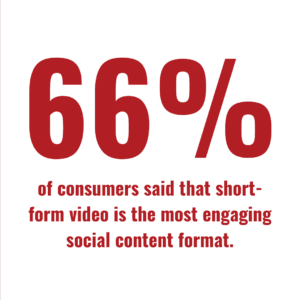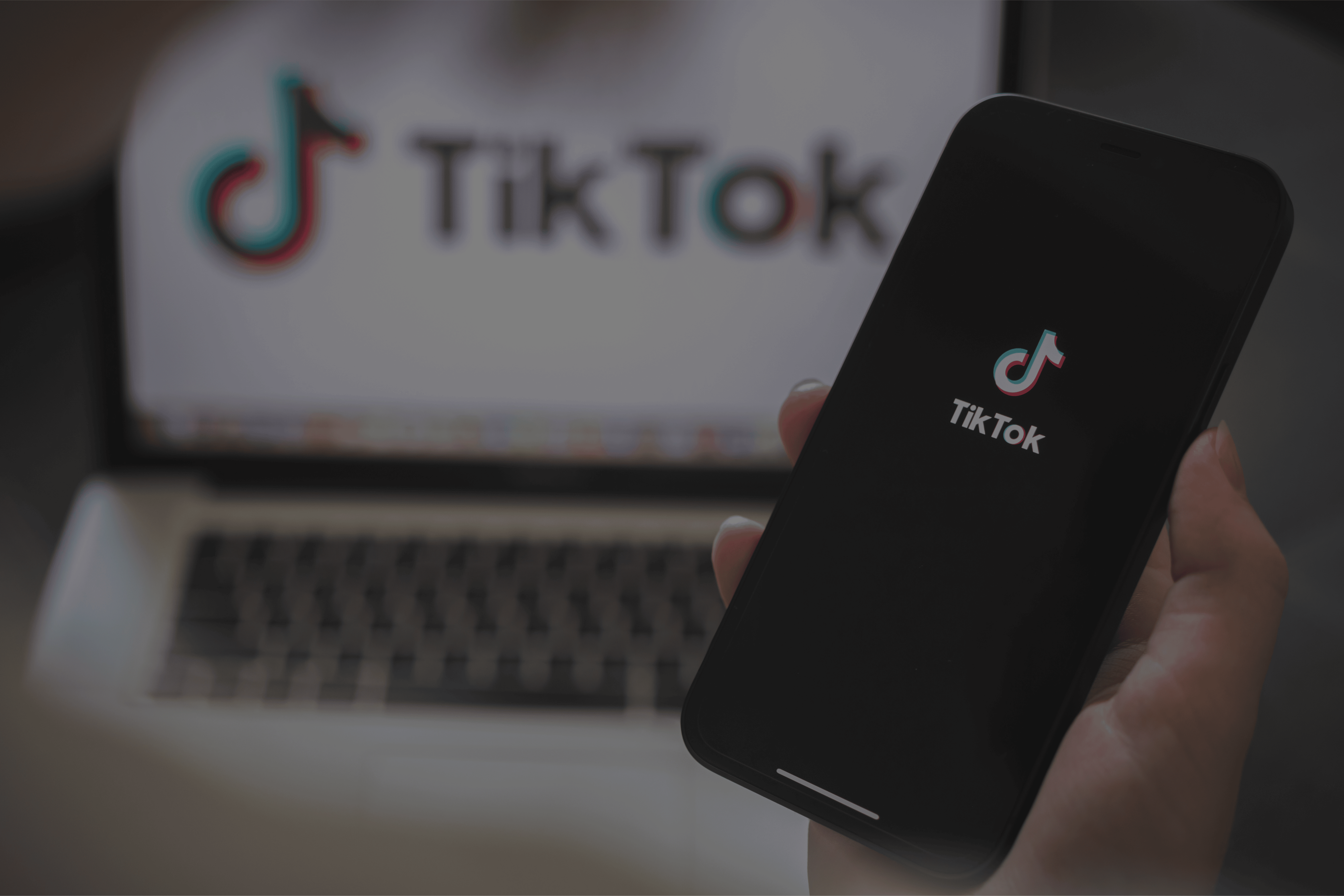Google has dominated the market as the preferred search engine for most internet users, but is there a new platform on the horizon? A recent survey found that 51% of Gen Z women prefer the TikTok search engine over Google Search. In fact, according to a 2024 Forbes report (see graph below), Gen Z is more likely than any previous generation to turn to social media when looking for information.
But what makes TikTok so appealing to young people when searching? And what does this mean for the future of search and search marketing?
Why are young people beginning to lean away from Google? While the reasoning can vary for each individual, some of the main factors are:
- A human-centric experience for users
- A visual appeal and user-friendly interface
- Influencers as information sources
- The TikTok algorithm
TikTok as a Search Engine

Before we dive into why TikTok is becoming a search competitor, we first need to understand TikTok as a search engine.
Last year, Senior Vice President Prabhakar Raghavan, the lead of Google’s Knowledge & Information organization, noted that social media platforms are eating into Google’s share of search as young people started to reach for TikTok and Instagram to begin their path of discovery rather than Google Maps and Search.
TikTok has been adding features and updates since 2022 that has made it more competitive in the search industry. Most notably, TikTok began identifying keywords in the comments of videos and linking the search results for them in August of last year.
More recently, TikTok launched search ads that allow advertisers to have existing In-Feed Ad creative served in the search results along with organic results. The TikTok search ad option is on by default when you are setting up In-Feed Ads in TikTok Ads Manager, but can be toggled off. While advertisers can’t bid on specific keywords for advertising purposes, they can add negative keywords to prevent search ad placement near posts that don’t align with the brand’s messaging.
When introducing the TikTok search ads toggle, the platform mentioned that they plan to continuously innovate their search experience. It is likely we can expect new features for TikTok search in the future.
1. A Human-Centric Search Experience
TikTok stands out as a search engine, compared to Google, because the content served is more focused on consumers rather than brands.
While Google relies heavily on its algorithm, TikTok search results are driven by user-generated content. As internet users value authenticity and reliability during discovery, discovering brands or products through referrals from real people sharing their real experiences can help foster a more intimate connection between users and information.
For example, let’s say we want to buy a new pet food brand for our office dog, Keeley.
When TikTok users search “dog food,” they are served videos of people sharing what they feed their dog or their personal experiences with different dog food brands.
When Google users search “dog food,” they are first served ads from different dog food brands, followed by organic results from pet stores that sell dog food.
Individuals who are in the discovery phase of the consumer journey might prefer gathering information from TikTok videos of people just sharing information rather than the pet food brands or pet stores that are invested in the individual purchasing their product.
2. Visual Appeal and User-Friendly Interface
TikTok, due to most of its content being in a short-form video format, makes this social platform more visual-centric compared to text-heavy Google search results. Focusing on visual content can make the TikTok search engine results more easily digestible and accessible.
According to a 2022 Sprout Social study, short-form video content plays a vital role in the online and social media spaces, with 66% of consumers reporting that it is the most engaging type of social media content.
The way that the platform is set up to view multiple sources of information quickly also plays a role. In Google search, a user has to click in and out of different search results, whereas users who use TikTok just need to swipe to move to the next result.
3. Influencers as Information Sources
On TikTok, and across social media platforms overall, influencers can significantly influence trends, information spread, and purchasing decisions. Younger users, guided by their favorite content creators, seek new information through them on TikTok rather than through more traditional search methods. Influencers’ sway is highlighted in purchasing behavior as well; GRIN found that 82% of their survey respondents are more likely to purchase a product that an influencer promoted.
4. TikTok’s Algorithm
One of the main draws of TikTok for users is the personalized “For You Page” (FYP). Each user has a unique experience on the platform, with TikTok’s algorithm recommending content that aligns with the user’s specific interest. TikTok pushes content to a user’s FYP based on a number of factors, but some of the main ones are:
- User interactions, such as the videos a user engages with, the accounts they follow, and the videos they create themselves.
- Video information (captions, audio, and hashtags).
- Device and account settings, such as language, country setting, and device type.
This real-time, personalized approach to recommending content, combined with other TikTok search features, allows for hyper-personalized content recommendations to a user who can also seek out broader information about topics on the same platform. Google’s algorithm, by contrast, will be tailored to its results based on location and search history, but Google’s reliance on SEO does not provide for the same personalized experience on the platform compared to TikTok’s algorithm.
While TikTok search does not utilize SEO like Google search does, it does use hashtags, which can play a major role in making a creator’s content discoverable and searchable. Hashtags allow users to categorize their content and to reach people who are interested in the topic of the video with ease.
Reliability of the Sources: Battling Misinformation
You can’t believe everything you read (or watch) online, and that goes for information sourced from TikTok or Google as well.
A major concern about TikTok being used for search is the amount of misinformation on the platform. A 2022 study found that nearly 1 in 5 videos under prominent news topics contained false information or misleading claims. The reason for the widespread inaccuracy is in part due to the fact that it is harder for TikTok’s technology to analyze both the audio and visual content for false claims. This technological difficulty causes TikTok to rely on community-driven reporting and moderation to manage content on the platform, which means a lot of outright false or misleading content circulates on the platform.
That is not to say that everything on Google is true either. In the past, developers at Google have had to manually remove certain autosuggestions from its search bar due to the original suggested results being anti-Semitic, sexist, and the like. The original results appeared because Google’s algorithm used biased, human-created content.
Google, however, has somewhat of a leg up on combating false news, hate speech, and other inaccuracies, at least compared to TikTok. It isn’t perfect, but it does adapt faster than most other platforms and also casts a wider net with which to catch hate speech and misinformation. Its tools include its constantly-evolving algorithm, cross-checking technology, and human web developers’ input. These factors all make it harder for false information to rank well.
Final Thoughts
In the ever-evolving landscape of search tools and search marketing, the TikTok search engine is emerging as a disruptor and is in the process of reshaping how younger users are accessing and discovering information online. Users like content that feels like it is coming from real people, is easily digestible, and is personalized for them when they’re in the discovery phase of their search.
Should search marketers drop everything they do on Google and move to TikTok search? No. Google is still the top dog of search, but it would be smart to keep an eye on TikTok as its search efforts shift it to becoming a formidable contender in the search arena.
Need Help With Social Media Marketing?
Want to utilize TikTok to get your brand in front of your target audience during their discovery searches but don’t know where to begin? Give us a call! As a top team of digital marketing experts, we would love to help you build a social media marketing strategy and discuss exciting ways to generate video content to help you reach and connect with your target audience.






